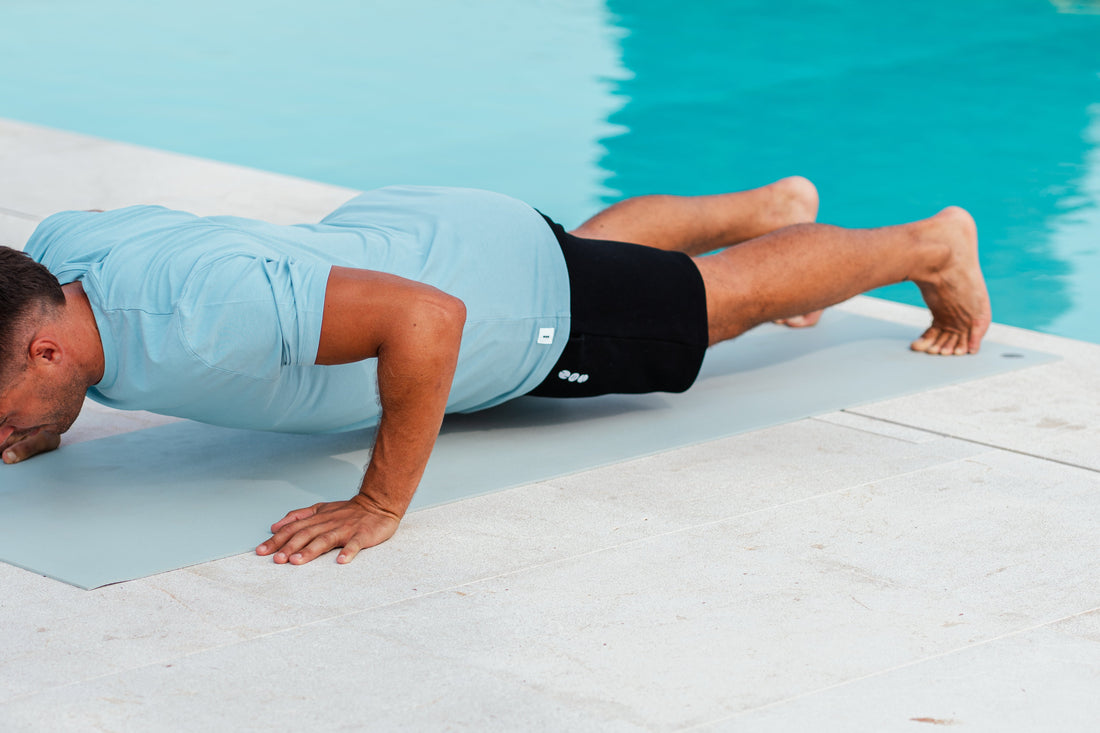
What Makes TENCEL™ Lyocell an Eco-friendly Fabric?
What Makes TENCEL™ Lyocell an Eco-Friendly Fabric?
In the fashion world, sustainability is gaining more and more attention. One of the most innovative fabrics leading the way is TENCEL™ Lyocell. Increasingly used in sportswear, such as polyester-free padel clothing. Let’s explore why this material is a true game-changer.
The Origins of TENCEL™ Lyocell
TENCEL™ Lyocell is a man-made fiber derived from wood pulp sourced from sustainably managed forests. The journey from tree to fabric is where its eco-friendly character really stands out.
Key aspects of its production:
- Renewable raw material: made from wood, a natural and renewable resource.
- Responsible sourcing: wood comes from certified and controlled forests.
- Efficient land use: requires significantly less land than cotton.
The Closed-Loop Production Process
One of the most remarkable features of TENCEL™ Lyocell is its closed-loop production process. This system sets it apart from many other fabrics in terms of sustainability.
How it works:
- Wood pulp is dissolved in a non-toxic solvent.
- The solution is extruded through fine holes to form fibers.
- The solvent is recovered and reused, creating a closed loop.
Benefits of this process:
- Minimal waste: up to 99% of the solvent is reused.
- Low water use: far less water needed than for cotton production.
- Reduced chemical impact: non-toxic chemicals are recycled in the system.
Energy Efficiency and Carbon Footprint
The production of TENCEL™ Lyocell is designed with energy efficiency in mind, which adds to its sustainable profile.
Environmental advantages:
- Lower energy use than many synthetic fibers.
- Reduced carbon footprint during production.
- Potential for carbon-neutral operations with sustainable practices.
Biodegradability and End-of-Life
Unlike synthetics such as polyester, TENCEL™ Lyocell offers significant end-of-life benefits.
Key attributes:
- Biodegradable: breaks down naturally in soil and marine environments.
- Compostable: suitable for home and industrial composting.
- Lower microfiber pollution: sheds fewer microfibers during washing.
Performance and Sustainability in Sportswear
TENCEL™ Lyocell isn’t just eco-friendly; it also performs exceptionally well, making it a top choice for sportswear, including padel clothing.
Benefits for athletes:
- Excellent moisture management.
- Breathability for temperature regulation.
- Soft and gentle on the skin.
- Durable for long-lasting wear.
These qualities make TENCEL™ Lyocell an excellent option for polyester-free sportswear.
Comparison to Other Fabrics
To fully appreciate its eco-friendly qualities, here’s a comparison with other fabrics:
| Fabric | Water Use | Chemical Use | Biodegradability |
|---|---|---|---|
| TENCEL™ Lyocell | Low | Low (recycled) | High |
| Cotton | High | High | High |
| Polyester | Moderate | High | Low |
This comparison highlights why TENCEL™ Lyocell is considered a more sustainable option, especially for sportswear such as padel clothing.
The Future of Sustainable Sports Fabrics
As consumers become more eco-conscious, the demand for sustainable sportswear continues to rise. TENCEL™ Lyocell is at the forefront, offering a reliable alternative to traditional synthetics.
Trends in eco-sportswear:
- Growing use of sustainable fabrics like TENCEL™ Lyocell.
- Rising demand for polyester-free options.
- Innovation in fabric blends for both performance and sustainability.
Conclusion
TENCEL™ Lyocell stands out as a sustainable fabric thanks to its responsible sourcing, closed-loop production, energy efficiency, and biodegradability. Combined with excellent performance, it’s an ideal choice for athletes who value both comfort and sustainability.
Discover the eco-friendly excellence of TENCEL™ Lyocell for yourself. Explore our collection of sustainable sportswear and make a positive impact on your performance and the planet.

